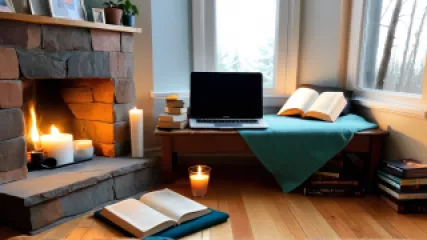5 Alternative Therapies You Can Learn from Your Favorite Books and Movies
Introduction:
Books and movies have the power to transport us to different worlds, evoke strong emotions, and ignite our imagination. But did you know that they can also teach us valuable lessons about alternative therapies? From ancient healing practices to modern mental health techniques, many books and movies explore these topics and provide insights that we can apply to our own lives. In this article, we will delve into five alternative therapies that you can learn from your favorite books and movies. So grab your popcorn and get ready to discover new ways to enhance your well-being.
1. Mindfulness Meditation from "Eat, Pray, Love"
In the book and movie "Eat, Pray, Love" by Elizabeth Gilbert, the protagonist embarks on a journey of self-discovery through Italy, India, and Bali. During her time in India, she learns the art of mindfulness meditation from a wise old man called Richard. Mindfulness meditation involves being fully present in the moment, observing your thoughts and feelings without judgment.
Key Takeaway: Just like the character in "Eat, Pray, Love," you can incorporate mindfulness meditation into your daily routine. Find a quiet space, sit comfortably, and focus on your breath. Allow thoughts to come and go without getting attached to them. Over time, this practice can help reduce stress, improve concentration, and enhance overall well-being.
2. Virtual Wellness Retreats from "Wild"
"Wild" is a memoir by Cheryl Strayed that was later adapted into a movie starring Reese Witherspoon. The story follows Cheryl as she embarks on a solo hike along the Pacific Crest Trail to heal from personal struggles. Throughout her journey, she finds solace in nature and experiences a sense of renewal.
Key Takeaway: If you can't embark on a physical retreat, consider participating in virtual wellness retreats. These online programs offer workshops, classes, and activities focused on mental and physical well-being. From yoga and meditation sessions to creative workshops and nutrition classes, virtual wellness retreats provide a space for self-reflection and growth.
3. Spiritual Healing Practices from "The Alchemist"
"The Alchemist" by Paulo Coelho is a beloved novel that follows the journey of a young shepherd named Santiago as he searches for his personal legend. Along the way, he encounters various characters who teach him valuable life lessons, including spiritual healing practices. These practices involve connecting with the divine and nurturing the soul.
Key Takeaway: Just like Santiago, you can explore spiritual healing practices such as meditation, journaling, or engaging in rituals that resonate with your beliefs. These practices can help cultivate inner peace, clarity, and a deeper connection with yourself and the world around you.
4. Virtual Therapy Sessions from "Silver Linings Playbook"
"Silver Linings Playbook" is a novel by Matthew Quick and a movie adaptation starring Bradley Cooper and Jennifer Lawrence. The story revolves around Pat, a man with bipolar disorder, and Tiffany, a woman dealing with her own struggles. Throughout the narrative, both characters attend therapy sessions to navigate their mental health challenges.
Key Takeaway: If you're unable to attend in-person therapy sessions, consider exploring virtual therapy options. Many therapists offer online sessions, allowing you to receive professional support from the comfort of your own home. Virtual therapy sessions can help you address mental health concerns, develop coping strategies, and foster personal growth.
5. Virtual Self-Help Sessions from "The Happiness Project"
"The Happiness Project" by Gretchen Rubin is a memoir that documents the author's year-long experiment to find greater happiness in her life. Throughout the book, she explores various self-help techniques and engages in activities aimed at improving her overall well-being.
Key Takeaway: Inspired by "The Happiness Project," you can participate in virtual self-help sessions to enhance your own happiness and personal growth. These sessions can include workshops, courses, or online communities focused on specific areas of self-improvement, such as gratitude, goal-setting, or stress management.
Conclusion:
Books and movies have the power to entertain and inspire us, but they can also serve as valuable sources of knowledge and guidance. By exploring alternative therapies through the lens of our favorite stories, we can discover new ways to improve our mental and emotional well-being. Whether it's incorporating mindfulness meditation into our daily routine, participating in virtual wellness retreats, or exploring spiritual healing practices, there are countless lessons to be learned from the pages of books and the screens of movies. So next time you dive into a captivating story, keep an eye out for the hidden gems of alternative therapies.






